Publications: Journal articles
-
 “Public spaces in Late Socialist East Asia: Interactions, Performativity, Citizenship”, Special issue of the journal Civilisations, vol. 69.2020
“Public spaces in Late Socialist East Asia: Interactions, Performativity, Citizenship”, Special issue of the journal Civilisations, vol. 69.2020Pdf available here.
-
 "Public spaces in late socialist East Asia : Introduction", Special issue of the journal Civilisations, vol. 69.2020
"Public spaces in late socialist East Asia : Introduction", Special issue of the journal Civilisations, vol. 69.2020 -
 "The transformation of mobility in post-đoi mơi Vietnam", Special issue of the journal Civilisations, vol. 69.2020
"The transformation of mobility in post-đoi mơi Vietnam", Special issue of the journal Civilisations, vol. 69.2020 -
 “Emerging public spaces in rural Laos”, Special issue of the journal Civilisations, vol. 69.Forthcoming
“Emerging public spaces in rural Laos”, Special issue of the journal Civilisations, vol. 69.Forthcoming -
 Malaise of Indolence: (Dis)Engagements with the Future among Young Migrants in Shanghai. Ethos.(forthcoming)
Malaise of Indolence: (Dis)Engagements with the Future among Young Migrants in Shanghai. Ethos.(forthcoming) -
 “Ce que produit l'incongrun, Affect et socialité dans un lieu public à Shanghai”, Les Politiques Sociales, numéro spécial : Les espaces publics urbains et leurs indésirables, dirigé par Sarah Van Hollebeke, Mathieu Berger et Louise Carlier.Forthcoming
“Ce que produit l'incongrun, Affect et socialité dans un lieu public à Shanghai”, Les Politiques Sociales, numéro spécial : Les espaces publics urbains et leurs indésirables, dirigé par Sarah Van Hollebeke, Mathieu Berger et Louise Carlier.Forthcoming -
 “Introduction: The Politics of Negative Affects in Post-Reform China” HAU: Journal of Ethnographic Theory. Introduction to guest edited Special Section.2021
“Introduction: The Politics of Negative Affects in Post-Reform China” HAU: Journal of Ethnographic Theory. Introduction to guest edited Special Section.2021If there is such a thing as a dominant public sphere in post-reform China, its emotional tonality has often been described as overwhelmingly positive, as evidenced by the recent focus on “happiness” campaigns or state-promoted “positive energy.” This special section takes the prevalence of positivity as an invitation to investigate its opposites: what, in an authoritarian context, is the political work of negative affects such as bitterness, fear, shame, indifference, deflation, or trouble? Locating the articles within a broader literature on affect and emotion in anthropology and beyond, this introduction provides an overall framing for the collection. Based on the articles, it depicts the potential of negativity as both disruptive and generative, as affects work through their evaluative and propositional force which induces transformation while often evading repression.
-
 "The Politics of Negative Affects: A view from Post-Reform China". Special Section of the journal HAU: Journal of Ethnographic Theory.2021
"The Politics of Negative Affects: A view from Post-Reform China". Special Section of the journal HAU: Journal of Ethnographic Theory.2021If there is such a thing as a dominant public sphere in post-reform China, its emotional tonality has often been described as overwhelmingly positive, as evidenced by the recent focus on “happiness” campaigns or state-promoted “positive energy.” This special section takes the prevalence of positivity as an invitation to investigate its opposites: what, in an authoritarian context, is the political work of negative affects such as bitterness, fear, shame, indifference, deflation, or trouble?
-
 “Places of “Heat and Noise”: Sonorous Presence and the Interstitial Time-Spaces of Everyday Life in Contemporary Beijing,” The Senses and Society.2021
“Places of “Heat and Noise”: Sonorous Presence and the Interstitial Time-Spaces of Everyday Life in Contemporary Beijing,” The Senses and Society.2021Public parks in urban China have become places where elder and middle-aged city-dwellers join in varied group activities such as choral singing, plaza dancing, or traditional and revolutionary opera, to name but a few. While these places have been analyzed as a setting for a rich, everyday public life, the sonic dimension of park life has been relatively unexplored. Based on recent ethnographic accounts of encounters and performances in Beijing’s public parks, this article explores these practices as an intervention in the daily sonic order of the city, an active production of the textures of the everyday through “heat and noise” (re’nao). Using voices and technologies to perform in public, the display of sounds by parkgoers who experienced the Cultural Revolution echoes the loudness of those days while creating temporal assemblages of their own. Simultaneously, they reshape the patterns of co-presence and engagements among strangers, allowing for convivial interactions. Constitutive of the everyday, the tension between familiarity and strangeness, between routine and playfulness, is thus cultivated through “the sensorial production of the social” in ways that shape a pleasurable urban experience. Available here.
-
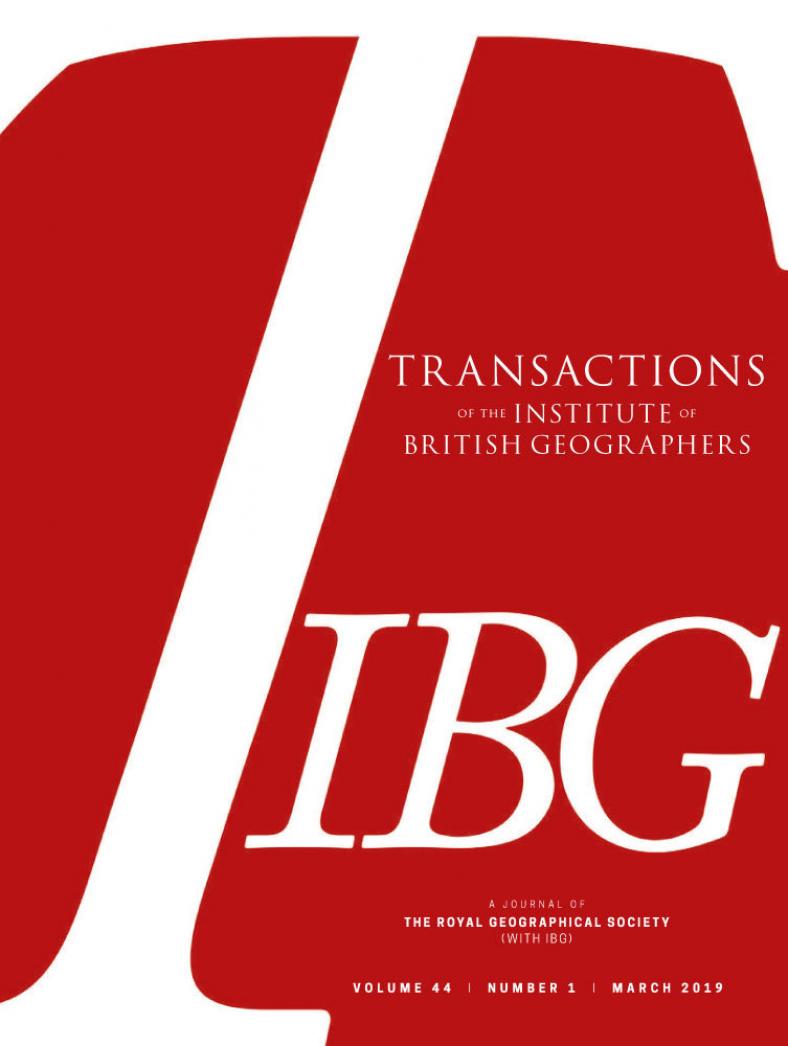 “Stress and the Ecology of Urban Experience: Migrant Mental Lives in Central Shanghai”, Transactions of the Institute of British Geographers, 45 (4): 862-876.2020
“Stress and the Ecology of Urban Experience: Migrant Mental Lives in Central Shanghai”, Transactions of the Institute of British Geographers, 45 (4): 862-876.2020Focusing on migrant lives in central Shanghai, this paper examines how situated practices of urban dwelling contribute to the management of mental stress. Dissenting with accounts that typify urban living as deleterious to mental health, the paper argues that it is in the relationship between bodies and their environment where subjectivity, including mental states, are formed.
-
 “Les plaisirs ordinaires du chant révolutionnaire en Chine post-maoïste”, L'Homme : Revue française d'anthropologie, vol. 234-235, pp. 211-2442020
“Les plaisirs ordinaires du chant révolutionnaire en Chine post-maoïste”, L'Homme : Revue française d'anthropologie, vol. 234-235, pp. 211-2442020In the last three decades, public parks in urban China have been appropriated as significant gathering places by retirees engaging in various collective activities, “for fun” (wan’r or ziyu zile). This emphasis on playfulness deserves particular attention, especially in the context of activities devoted to the singing of propaganda songs from the Mao era. While these performances have been read as forms of political expression in recent academic works, such interpretations overlook what the ludic reframing of revolutionary singing does to the very literal, ideological meanings on which they rely. Based on ethnographic fieldwork conducted in Beijing between 2011 and 2014, this article highlights how the ludic frame produces a relation of non-coincidence between the nature of discourses and the aesthetics pleasures of performance as specific contexts of experience and forms of sociality. I discuss how the possibility of re-presenting without necessarily representing shapes the ways in which those who lived through the Mao era relate to that very past that these songs index. À lire (fr) ici.
-
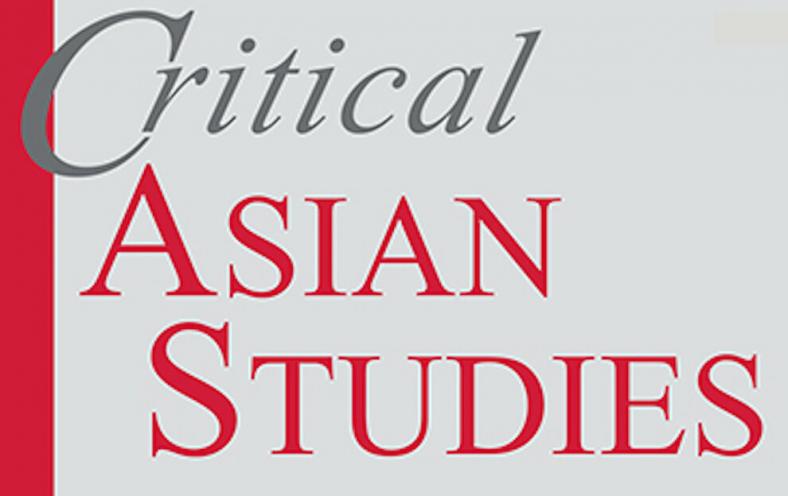 “Governing (through) trustworthiness: technologies of power and subjectification in China’s Social Credit System”, Critical Asian Studies, 52 (4), 565-5882020
“Governing (through) trustworthiness: technologies of power and subjectification in China’s Social Credit System”, Critical Asian Studies, 52 (4), 565-5882020This article examines the technologies of power and subjectification in China’s social credit system through a theoretically informed analysis of policy and legal documents as well as the narratives of social credit practitioners, including local officials and representatives of business partners. The ongoing project is a heterogeneous ensemble of discourses, regulations, policies, and any number of programs aiming to govern social and economic activities through problematizing, assessing, and utilizing the “trustworthiness” of individuals, enterprises, organizations, and government agencies. Drawing on governmentality studies, the article explicates the operation of governmental and disciplinary-pastoral modalities of power in the project, which are interrelated in their logics and overlap in the tactics employed. Whereas the strategy of governmental/biopolitical power is centered on achieving effective economic governance and improving regulatory compliance through technological fixes, disciplinary-pastoral power aspires to shape individual behavior and the collective mores of a locality according to a mixture of market-oriented and socialist-traditional values. Social credit is envisioned to produce and channel homo economicus and homo moralis. However, the relationships between liberal and socialist subjectivities and between rationalization and moralization are by no means coherent. The assemblage of social credit government is characterized by contradictions and contestations.
-
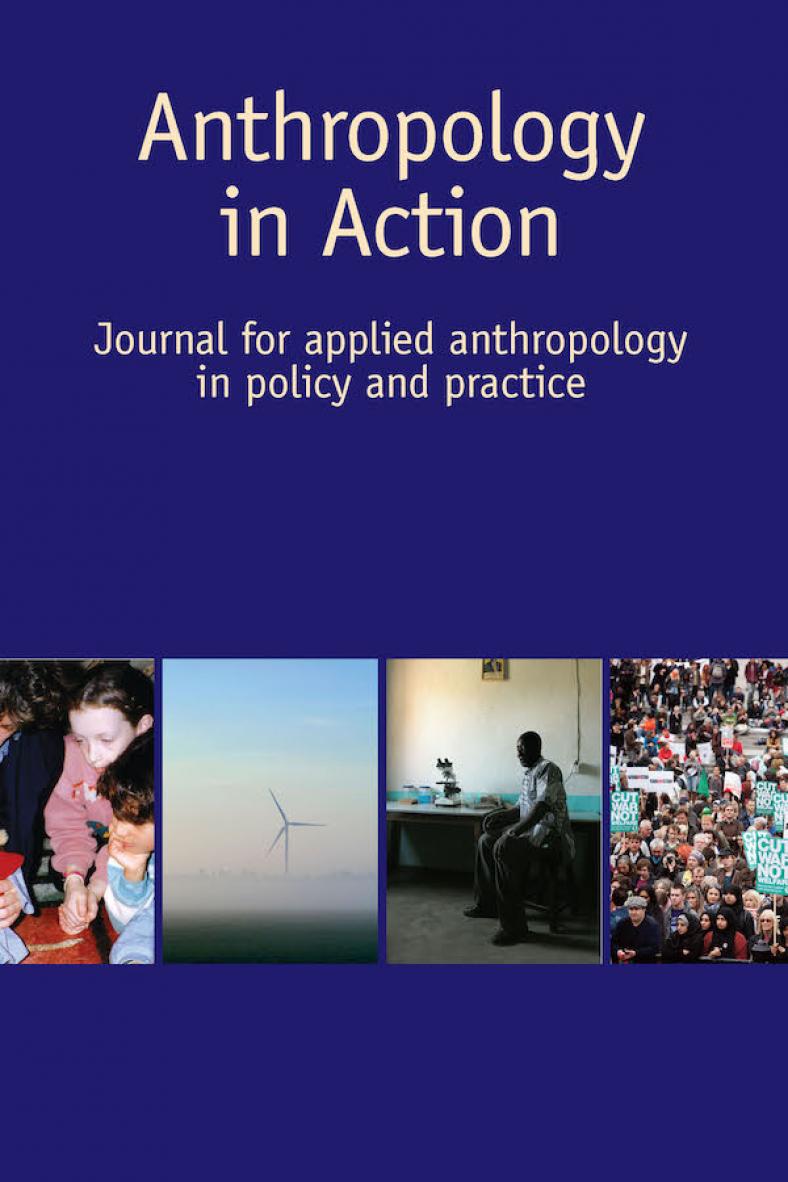 “Alone Together: Intimacy and Semi-Mobility during Ho Chi Minh City’s Lockdown", Anthropology in Action, 27(3), pp. 14–172020
“Alone Together: Intimacy and Semi-Mobility during Ho Chi Minh City’s Lockdown", Anthropology in Action, 27(3), pp. 14–172020In this article, based on my ethnographic experience of Ho Chi Minh City’s lock-down, I argue that COVID-19 acted as an accelerator of intimacies, allowing people to nego-tiate alternative forms of sociality both within and outside the domestic space. On the one hand, by confi ning people at home it brought to light social and housing inequalities in urban Vietnam. On the other, it forced people to fi nd imaginative ways to cope with social-distancing protocols. Since mobility during lockdown was limited, the normatively private space of the house became an incubator for social life, aff ording people – even those outside the circle of close friends a nd relatives – the opportunity to be alone together, sharing their temporary stuckness to challenge normative paĴ erns of intimacy and sexuality. Available here.
-
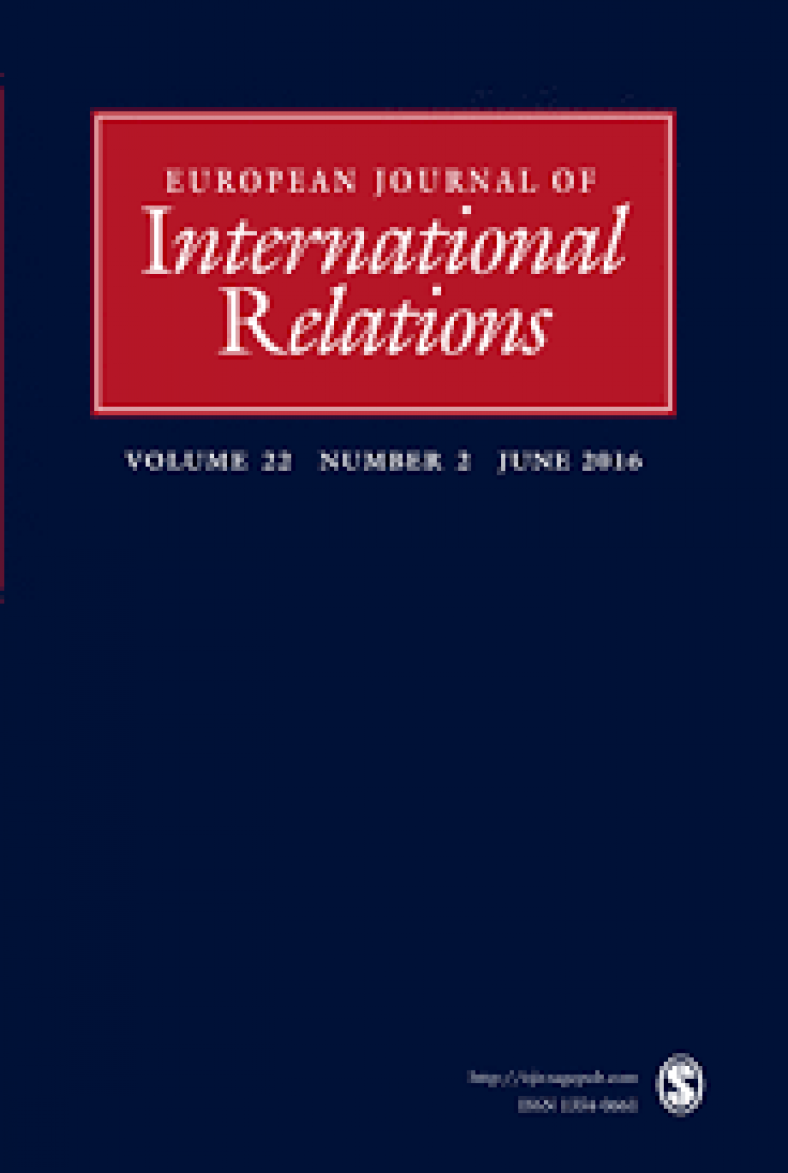 “Right-wing populism with Chinese characteristics? Identity, otherness, and global imaginaries in debating world politics online”, European Journal of International Relations.2019
“Right-wing populism with Chinese characteristics? Identity, otherness, and global imaginaries in debating world politics online”, European Journal of International Relations.2019The past few years have seen an emerging discourse on Chinese social media that combines the claims, vocabulary and style of right-wing populisms in Europe and North America with previous forms of nationalism and racism in Chinese cyberspace. In other words, it provokes a similar hostility towards immigrants, Muslims, feminism, the so-called ‘liberal elites’ and progressive values in general. This article examines how, in debating global political events such as the European refugee crisis and the American presidential election, well-educated and well-informed Chinese Internet users appropriate the rhetoric of ‘Western-style’ right-wing populism to paradoxically criticise Western hegemony and discursively construct China’s ethno-racial and political identities. Through qualitative analysis of 1038 postings retrieved from a popular social media website, this research shows that by criticising Western ‘liberal elites’, the discourse constructs China’s ethno-racial identity against the ‘inferior’ non-Western other, exemplified by non-white immigrants and Muslims, with racial nationalism on the one hand; and formulates China’s political identity against the ‘declining’ Western other with realist authoritarianism on the other. The popular narratives of global order protest against Western hegemony while reinforcing a state-centric and hierarchical imaginary of global racial and civilisational order. We conclude by suggesting that the discourse embodies the logics of anti-Western Eurocentrism and anti-hegemonic hegemonies. This article: (1) provides critical insights into the changing ways in which self–other relations are imagined in Chinese popular geopolitical discourse; (2) sheds light on the global circulation of extremist discourses facilitated by the Internet; and (3) contributes to the ongoing debate on right-wing populism and the ‘crisis’ of the liberal world order. Available here.
-
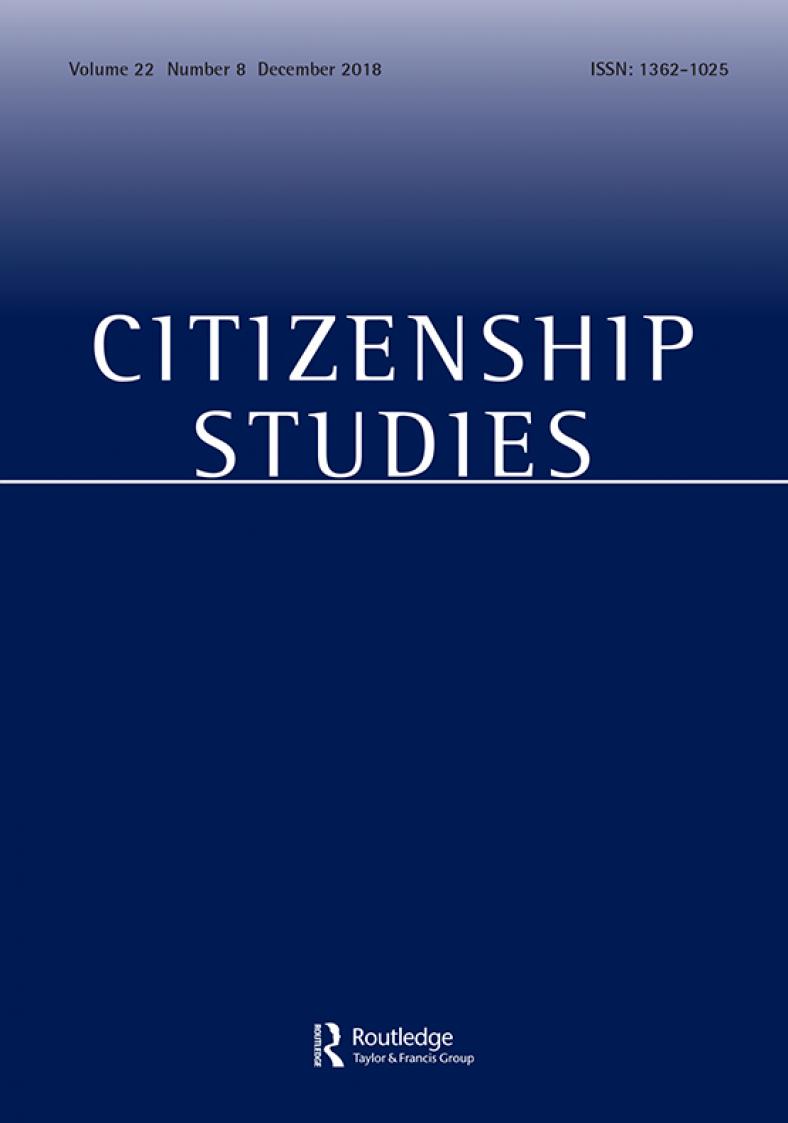 “Governing neoliberal authoritarian citizenship: theorizing hukou and the changing mobility regime in China”, Citizenship Studies 22(8): 855-881.2018
“Governing neoliberal authoritarian citizenship: theorizing hukou and the changing mobility regime in China”, Citizenship Studies 22(8): 855-881.2018Drawing on insights from critical citizenship studies and governmentality studies, this article explores and theorizes the changing mobility regime in China and its centerpiece, the household registration (hukou) system, from a global comparative perspective. First, we conceptualize the hukou system within the broader problematique of the spatiality of social citizenship and show how it enables processes of boundary-making that are comparable to the policing of the migrant poor in pre-welfare-state Europe and the subordination of international migrant labor in the contemporary world. Second, we argue that the shifting mobility regime envisaged by the current hukou reforms and new urbanization, which moves away from the dualistic structure of inclusion/exclusion to a multiplication of legal statuses and boundaries of citizenship, embodies a neoliberal-authoritarian rationality of government. Engaging with the debate on the hybrid governmentalities of post-socialist China, we focus particularly on new techniques of mobility management in China’s first-tier cities, whose national positioning resembles that of Northern countries in the global hierarchy of power. Through examples of the point-based system and the strategy of functional dispersal, we demonstrate how these globalizing cities actively engineer a highly polarized mobility regime in their pursuit of generating globally competitive spaces. The article contributes to the critique of methodological nationalism by denaturalizing national citizenship as a pre-given point of departure in examining mobility and socio-spatial boundaries. It also offers new insights into the converging trends of neoliberal authoritarianism and authoritarian neoliberalism in governing the ‘glocal’ hierarchies of citizenship and mobility. Available here.
-
 “Histoire et enjeux de la science-fiction sinophone”, Le Monde chinois, n°51.2018
“Histoire et enjeux de la science-fiction sinophone”, Le Monde chinois, n°51.2018Ce numéro spécial sur la science-fiction ne pouvait faire l’économie d’une brève introduction à l’évolution historique de ce genre littéraire dans l’espace sinophone. Exercice cependant périlleux à plusieurs égards : tout d’abord, la science-fiction en Chine (mais aussi à Taïwan et à Hong Kong) relève d’une histoire transnationale qui ne saurait être réduite à une chronologie verticale ou à une succession d’événements logiques et linéaires. À ce titre, il convient avant toute chose de pointer l’hétérogénéité avec laquelle la science-fiction sinophone s’est appropriée et a réinventé les codes de la science-fiction occidentale depuis le début du XXe siècle, que ce soit par l’intermédiaire de la traduction ou l’introduction d’œuvres science-fictionnelles « étrangères », à travers de différentes formes d’expressions artistiques (romans, magazines, blockbusters hollywoodiens type Star Wars ou mangas et anime japonais, pour ne donner que quelques exemples).
Ensuite, parce que l’impact de la traduction de « romans scientifiques » (kexue xiaoshuo 科学小说) européens comme ceux de Jules Verne à la fin de l’empire mandchou des Qing à la fin du XIXe et au début du XXe siècles ne s’est pas circonscrit à un genre particulier, mais a joué un rôle important, comme nous y reviendrons, dans l’ensemble du mouvement pour une nouvelle littérature et une nouvelle culture en Chine.
La science-fiction occidentale, quel que soit le nom qui lui a été donné dans son histoire, a de toute évidence non seulement influencé mais aussi contribué à façonner la science-fiction en Chine comme dans les autres espaces sinophones… À lire ici. -
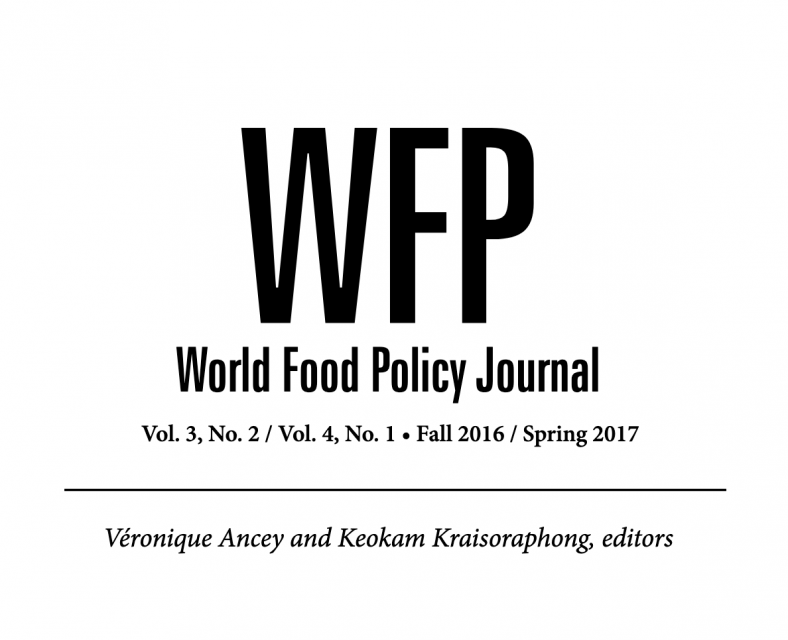 “Land, state, and society in Laos: Ethnographies of land policies”, World Food Policy Journal, 3(2)-4(1), pp. 83-104.2017
“Land, state, and society in Laos: Ethnographies of land policies”, World Food Policy Journal, 3(2)-4(1), pp. 83-104.2017Available to read here.
-
 “Les évolutions récentes des sociétés rurales au Laos. Exode rural, jeunesse et ancestralité à Houay Yong (province de Houaphan)”, Bulletin de l’Académie royale des sciences d’outre-mer, 63(1), pp. 49-69.2017
“Les évolutions récentes des sociétés rurales au Laos. Exode rural, jeunesse et ancestralité à Houay Yong (province de Houaphan)”, Bulletin de l’Académie royale des sciences d’outre-mer, 63(1), pp. 49-69.2017Since the 1990s, the highlands of Laos have been touched by a policy promoting resettlements into the lowland countryside. This policy eventually had a leverage effect on other forms of mobilityof a more spontaneous nature. Since the turn of the century, the urban population has grown tremendously, due to a strongrural flightof the youth –maleas female. This has been observed in Houay Yong, a Tai village in the province of Houaphan. More and more youths leave the village to take a chance in the city, especially in the capital, Vientiane. This article highlight, in an anthropological perspective, the driving forces of this process, with a focus on the village’s integration into the (inter)national economy; the imaginaries of the city and of modernity; the evolution of generation and gender relations; the emotional attachment to the village; and the persistence of a hierarchy based on ancestrality. Available here.